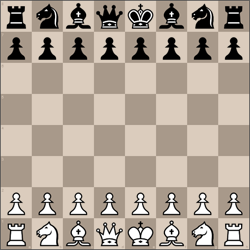< Prev
Index
Next >

 Chess 08 May 1960, Sun The Boston Globe (Boston, Massachusetts) Newspapers.com
Chess 08 May 1960, Sun The Boston Globe (Boston, Massachusetts) Newspapers.com
Chess Notebook
By LYMAN BURGESS
Two M.S.C.A. dates are coming up this month. The first is the annual Massachusetts vs. Connecticut match at the Boylston Chess Club, May 15. Dr. Joseph Platz, Hartford, spokesman for the visitors, has asked that the match be limited to 20 boards. Kazys Merkis, Bay State captain, hopes to raise the ante to at least 25. Connecticut won in 1956 and 1957; Massachusetts won in 1958 and 1959.
The second M.S.C.A. big-deal will be the Massachusetts state chess championship combined with the Massachusetts-open tournament to be held at the Cambridge Y.M.C.A., Central sq., over the week-end of May 27-30.
In the words of George Nute the tournament is “open to all chess players, male or female, young or old, good or bad.” Perhaps skilled and not so skilled would be a more; diplomatic designation for the third pairing.
Highest ranking player will be recognized as the open chess champion; highest ranking player from Massachusetts; will be state chess champion. All prizes will be in cash.
Entry fee is $10 in Class A and $5 in Class B. All entrants must be or become members of USCF and MSCA. Address inquiries and entries to: George L. Nute, 201 Hamilton, st., Cambridge 39, Mass., or, register at the tournament site at 7 p.m. Friday, May 27.
The tournament is to be a six-round Swiss under USCF rules with Harkness pairings. Time limit: 40 moves in two hours. Positively no adjudications.
Players are requested to bring sets and boards. Players are beseeched to bring clocks.
John Curdo, Lynn, is defending champion in both restricted and open senses. He came from behind to nose out David Scheffer, Cambridge; and Gediminas Sveikauskas, Harvard, who finished tied for second place. Andrew Browder won the 1959 B championship.
The Argentine Chess Federation, spurred by a large grant from the Argentine government has scheduled an ambitious international tournament to celebrate the 150th anniversary of the independence of Argentina. An elite list has been invited including Bobby Fischer and William Lombardy. The Soviet stars invited are: Mikhail Tal, Mikhail Botvinnik, Tigran Petrosian, and Vassily Smyslov. Other bids went to Svetozar Gligoric, Yugoslavia; Bent Larsen, Denmark; Laszlo Szabo, Hungary; Wolfgang Unzicker, East Germany; Wolfgang Uhlmann, West Germany; Fridrik Olafsson, Iceland; and Ludek Pachman, Czecho-Slovakia. If they all show up it will be the biggest thing since root beer.
William Gould, Providence, took the measure of Robert T. Durkin, Atlantic City, in the third round of the New England Amateur. Gould won third prize.
Robert Thomas Durkin (white) vs. William Gould (black)
King's Indian Defense: Semi-Averbakh System

Descriptive
1. P-Q4 N-KB3
2. P-QB4 P-KN3
3. N-QB3 B-N2
4. P-K4 P-Q3
5. B-K2 O-O
6. B-K3 P-K4
7. P-Q5 P-B4
8. P-KR3 N-K
9. P-KN4 N-R3
10. N-B3 R-N
11. R-KN N-B2
12. Q-Q2 P-QR3
13. O-O-O P-QN4
14. PxP PxP
15. B-R6 P-N5
16. N-N N-N4
17. BxB KxB
18. N-K N-Q5
19. B-B4 Q-R4
20. Q-Q3 R-QR
21. R-N3 B-R3
22. P-R3 BxB
23. QxB N-KB3
24. N-Q2 KR-QN
25. N-B2 PxP
26. RxP Q-N3
27. N-N QxPch
28. K-Q2 NxPch
29. K-K3 NxNch
30. KxN NxR
0-1 |
Algebraic
1. d4 Nf6
2. c4 g6
3. Nc3 Bg7
4. e4 d6
5. Be2 0-0
6. Be3 e5
7. d5 c5
8. h3 Ne8
9. g4 Na6
10. Nf3 Rb8
11. Rg1 Nc7
12. Qd2 a6
13. 0-0-0 b5
14. cxb5 axb5
15. Bh6 b4
16. Nb1 Nb5
17. Bxg7 Kxg7
18. Ne1 Nd4
19. Bc4 Qa5
20. Qd3 Ra8
21. Rg3 Ba6
22. a3 Bxc4
23. Qxc4 Nf6
24. Nd2 Rb8
25. Nc2 bxa3
26. Rxa3 Qb6
27. Nb1 Qxb2+
28. Kd2 Nxe4+
29. Ke3 Nxc2+
30. Kxe4 Nxa3
0-1 |

 Chess 15 May 1960, Sun The Press Democrat (Santa Rosa, California) Newspapers.com
Chess 15 May 1960, Sun The Press Democrat (Santa Rosa, California) Newspapers.com





































































